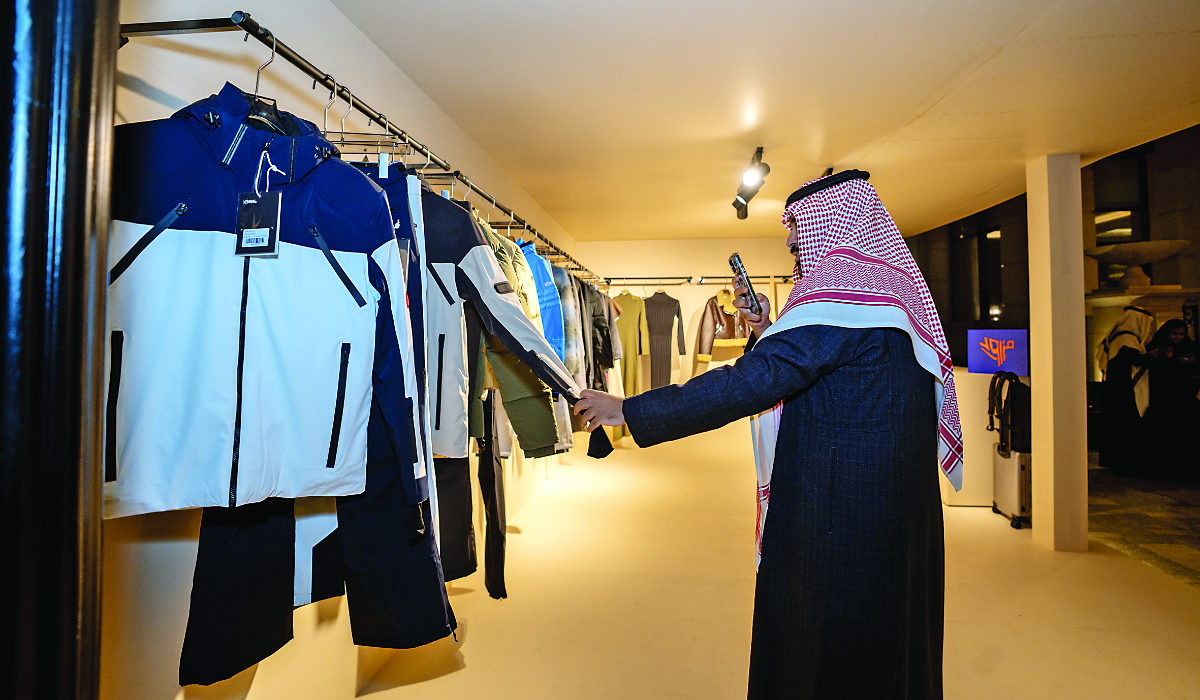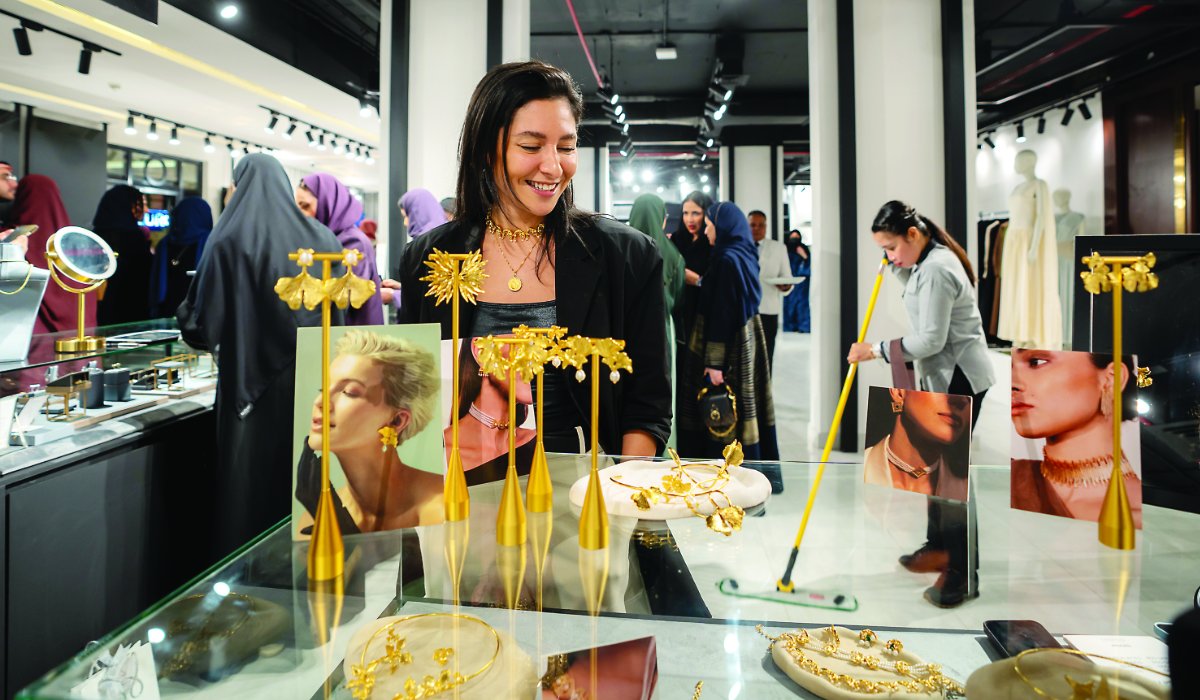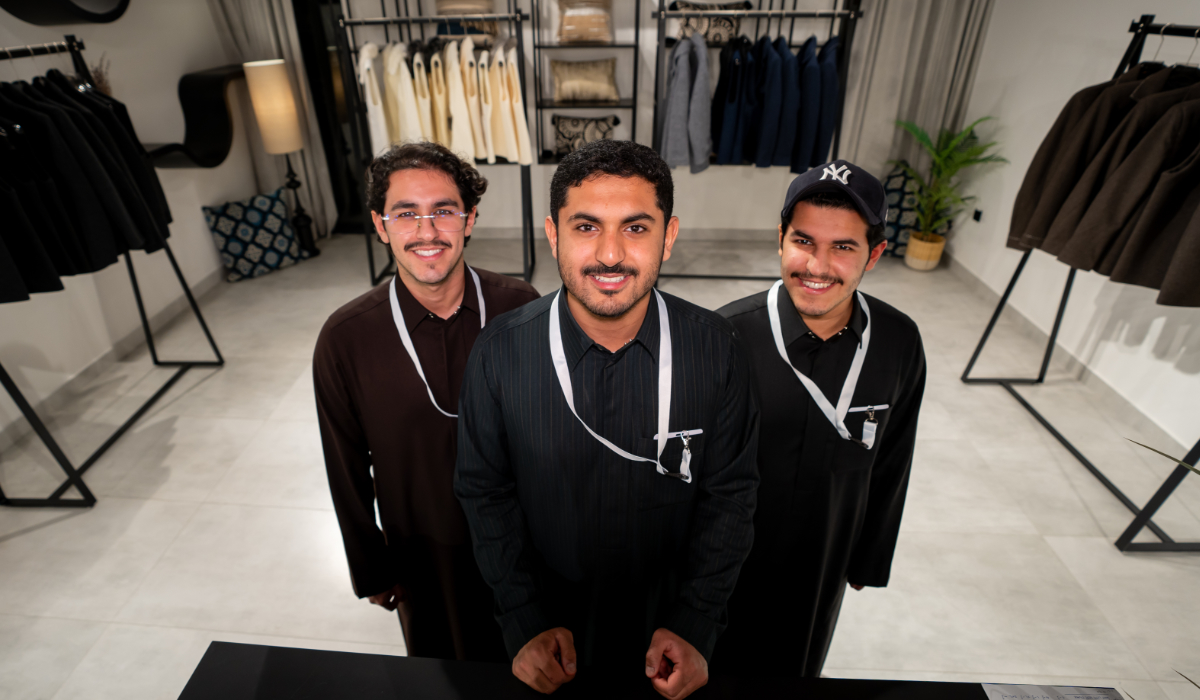JEDDAH: A group of Saudi female students at Princess Nourah University (PNU) in Riyadh joined a special project by modest clothing brand Rina to design a whole collection that was launched on the Saudi National day.
The 17-piece collection was based on and inspired by the streets, traffic, architecture, towers, lights, nature, and people’s lifestyle in Saudi Arabia’s capital, Riyadh.
The five fashion design students at PNU went with a different take on national day designs; instead of sticking to green color and traditional prints, they came up with a diverse collection of practical modern designs that have a Saudi twist or inspiration.
“We chose Riyadh because it was the city that brought us together as students from different regions across the Kingdom, and it is where we got to know each other, and first of all it’s the capital city of Saudi Arabia,” student Maha Alqumayzi told Arab News.
The collection was divided into two, the first is the “Open Circle” which are daywear pieces meant to be wearable by everyone every day, while the other was named “Weekend in Riyadh,” which are nightwear pieces and meant to stand out in the loud nightlife of Riyadh.
Furthermore, the materials used in the collection are environment-friendly.
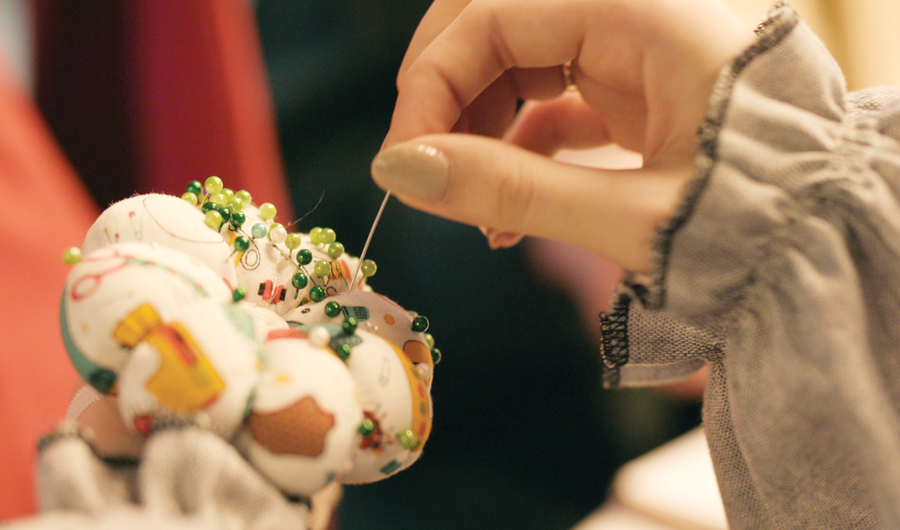
Alqumayzi’s pieces were inspired by a family trip to Al-Thumama Park, a reserved territory north of Riyadh.
“Local plants there caught my attention, and I never saw anyone addressing them in their designs before,” she said, “I chose flowers like the buck’s horn groundsel and the lavender and included them in my pieces.”
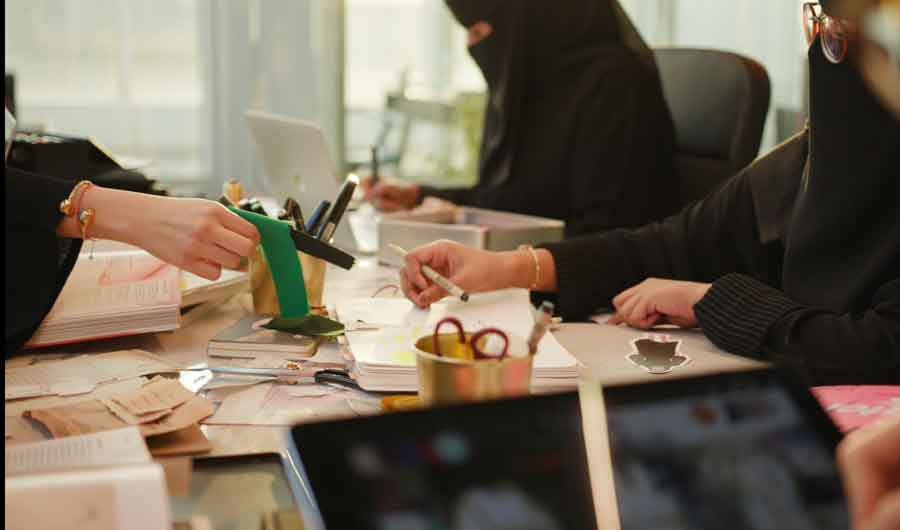
Students began working on the project from early January for Alqumayzi. Reconciliation of university work and the project was a challenge, especially with the COVID-19 outbreak. (Supplied)
Students have been working on the project since early January; for Alqumayzi, reconciliation of university work and the project was a challenge, especially with the COVID-19 outbreak.
“We learned many new things that we didn’t know before during our study; however, we did our best though it wasn’t easy, it was a very enlightening experience,” she said.
“I believe big dreams have small beginnings, and these beginnings are what actually make us the people we want to be,” she added.
Alqumayzi’s colleagues agreed with her, “I was excited and scared at the same time when I first know that the department chose me for the project, I was overwhelmed with the idea of working with an actual brand with an international reach, it is my first ever experience,” Hessa Alkhamis told Arab News.
“However it became easier with time. The more we learned about the project the more we became at ease,” She added,” It was an enriching experience and I am grateful for having had this opportunity.”
Alkhamis’s piece was inspired by Riyadh’s streets and architecture and it is suitable for any occasion.
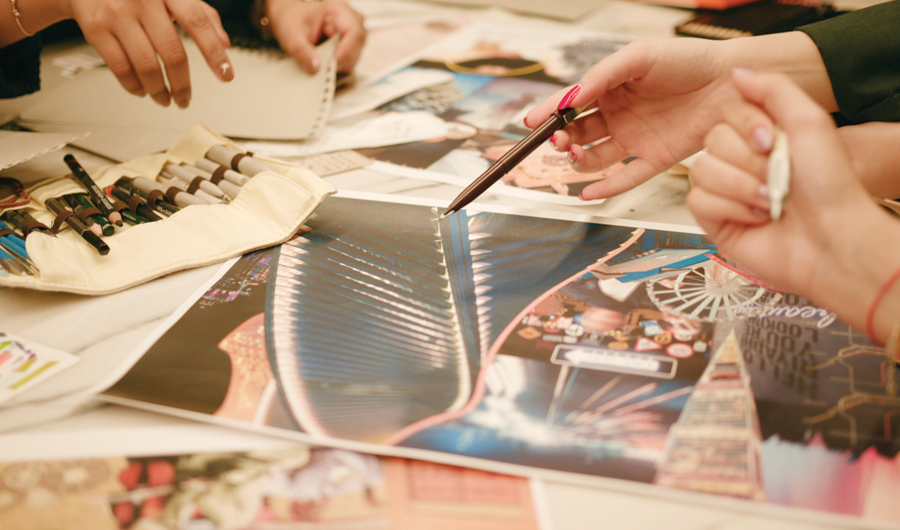
“It a long maxi white dress, and it is high in demand since the trend now is light maxi dresses girls wear underneath their abayas,” she said, “It is also suited for middle-aged women and whoever else is into modest modern pieces.”
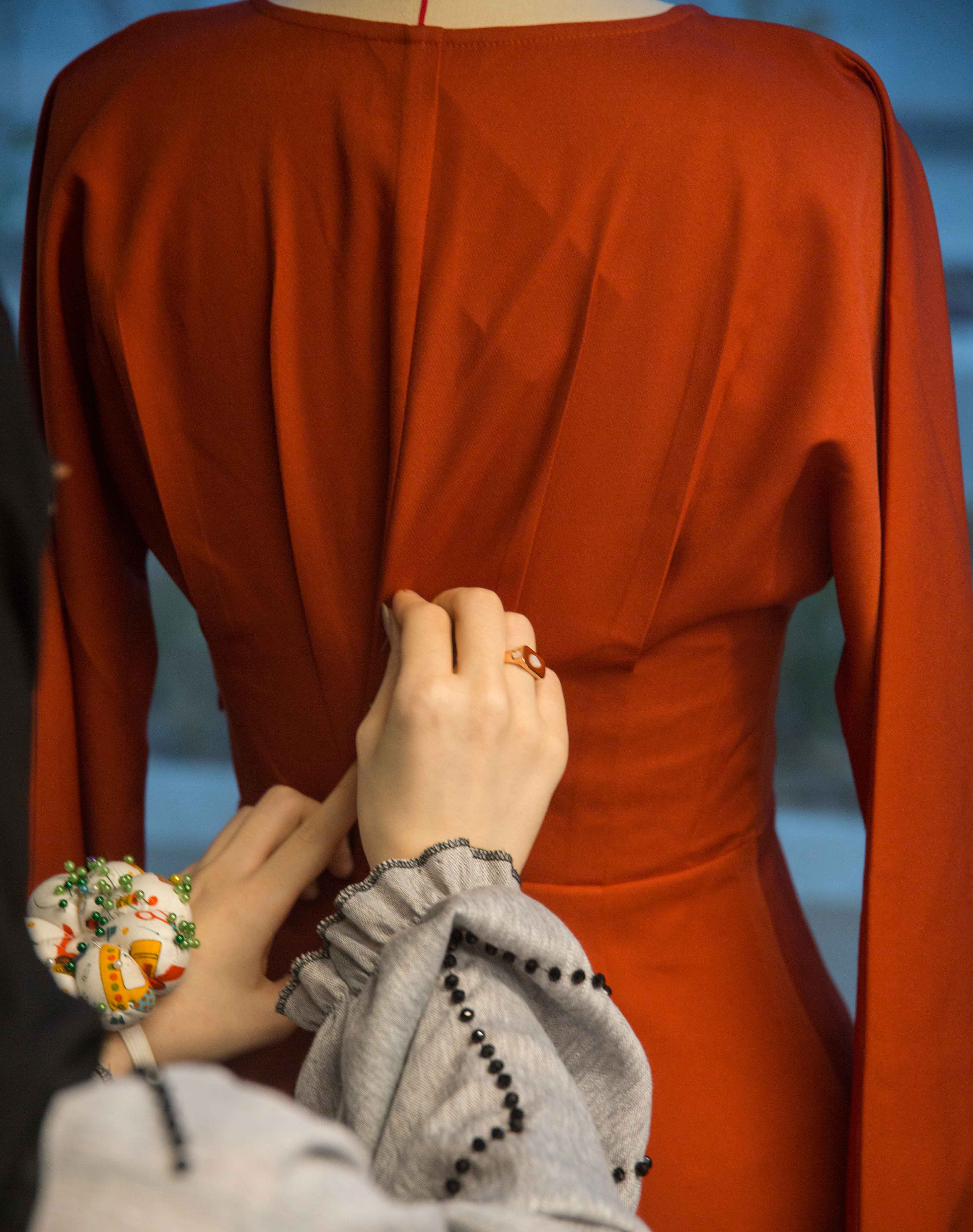
Students began working on the project from early January for Alqumayzi. Reconciliation of university work and the project was a challenge, especially with the COVID-19 outbreak. (Supplied)
Alkhamis hopes to have her own brand one day that is not only fashionable but also with a humanitarian cause,” I want it to gives back to the community, help humanity, deliver positive messages and give voice to the voiceless. It will be from people to people,” she said.
Afnan Alobaid, chose to represent the nightlife and weekend in Riyadh, “I designed two pieces, one is a stylish and chic abaya while the other is a dress with a trendy neon green color that also reflects Riyadh lights and weekend life,” she told Arab News.
She added, “We wanted to make pieces that represent the National Day by representing the Saudi people while keeping in mind the brand’s style too. At the same time, we wanted it to be unusual and more appealing for the youth.”
This project has also encouraged Alobaid to have her own brand one day. “This was a unique and invaluable experience that taught me a lot about the business world and how to design for the masses, which I didn’t know much about.”
Rania Almarwani agreed with Alobaid, “My perception about professional work has changed a lot, I learned how to detach myself from work, how to know and fulfill clients’ needs and understand their preferences,” she told Arab News.
“We didn’t know how to deal with factories, my designs as a student were focused on what I would or wouldn’t wear personally, but after this experience, I learned how to consider clients’ preferences, and it helped me understand the importance of having our own local brands that represent us and develops the industry,” she added. Almarwani likes the fashion trend of redesigning traditional costumes in a modern way. Therefore she chose to introduce a new simple design of the sherwal pants with a plain white shirt, “It is simple, comfortable and wearable every day,” she said.
Jamila Al-Shehri made pieces for both day and nightwear collections. “My outfits focused on elegance as well as practicality and suitability for all age groups. Moreover, I choose colors that suit Arab skin tones,” she said.
Al-Shehri said that trying to make designs for local as well as the international audience is a big experience. “Rina is a huge brand that targets international modest market costumers. The mass market and fast fashion is a completely new experience for us; it is different from what I studied which mainly focused on exclusive collections.”
She is proud of being part of such an initiatives and hopes that there are more initiatives like these that target students to elevate and polish their abilities and help produce stronger talents in the country’s workforce.
She also gave advice to students: “I strongly believe that hard work pays off,” said Al-Shehri. “Patience and hard work will inevitably get students the recognition they need and unimaginable good opportunities; they just need to do their best.”
Abdulaziz Al-Abdulkarim, board member of Rina brand owner AL Abdul Karim & Co., noted that the project’s aim was to give back to the community and celebrate the 90th Saudi National day by shining the light on the talent and hard work of Saudi youth.
“Rina gave the students a great opportunity to experience the life of a professional designer through this project,” he said, “We named each design after the designer; we wanted to give them the recognition they deserve and build up their confidence in their abilities.”
“We are very happy and proud of the outcomes of this project; we worked hard on the project for six months, they attended a number of workshops and worked with our multinational team on all the details,” he added. “We aim to carry out similar projects in the future.”
The collection became available online and in Rina stores as of Wednesday.








